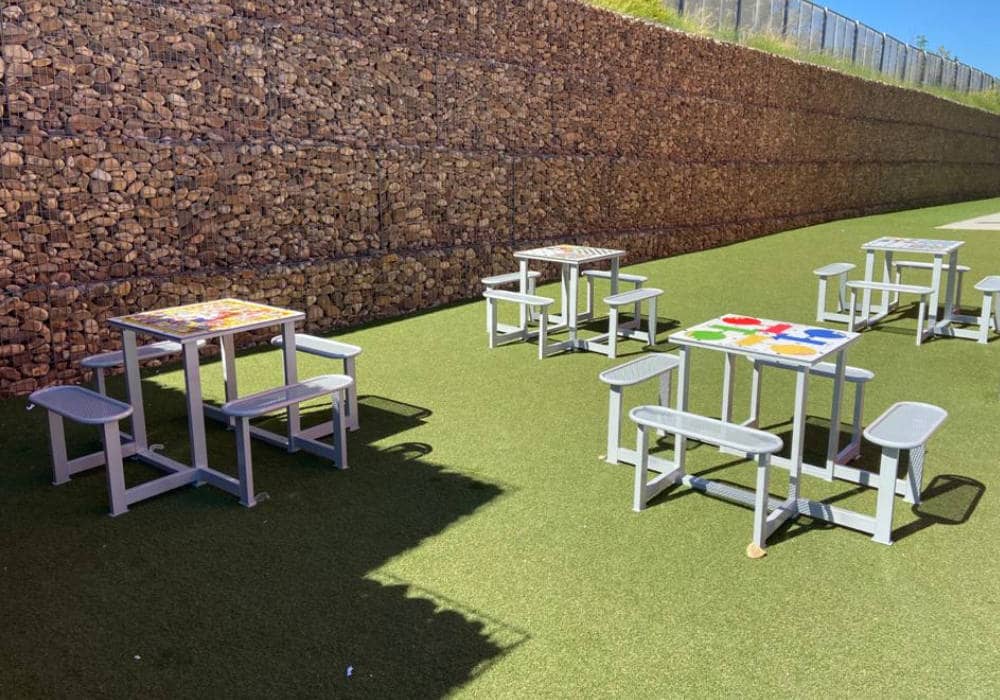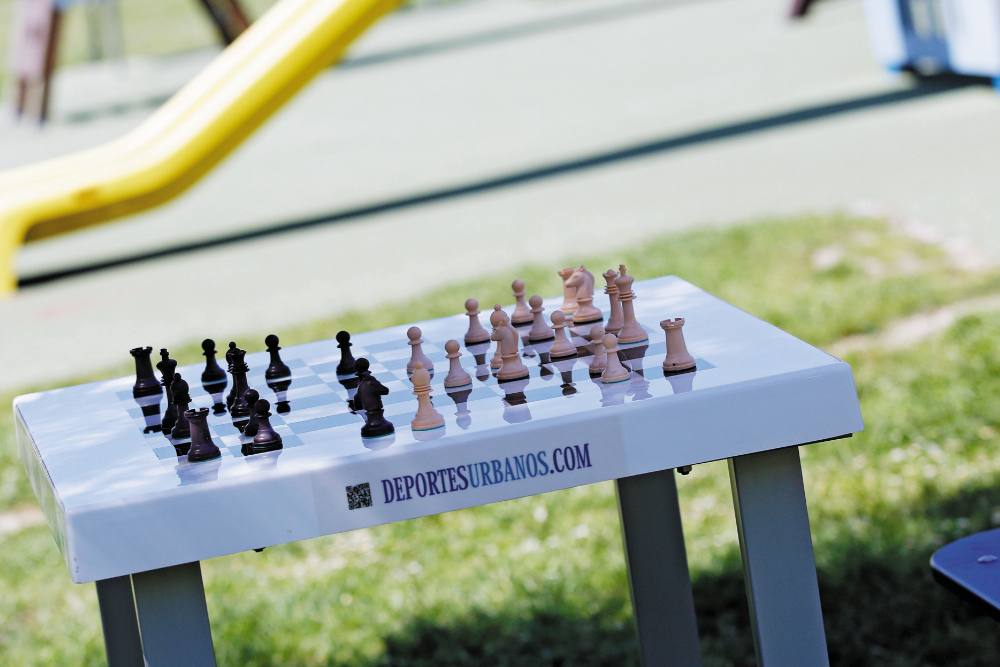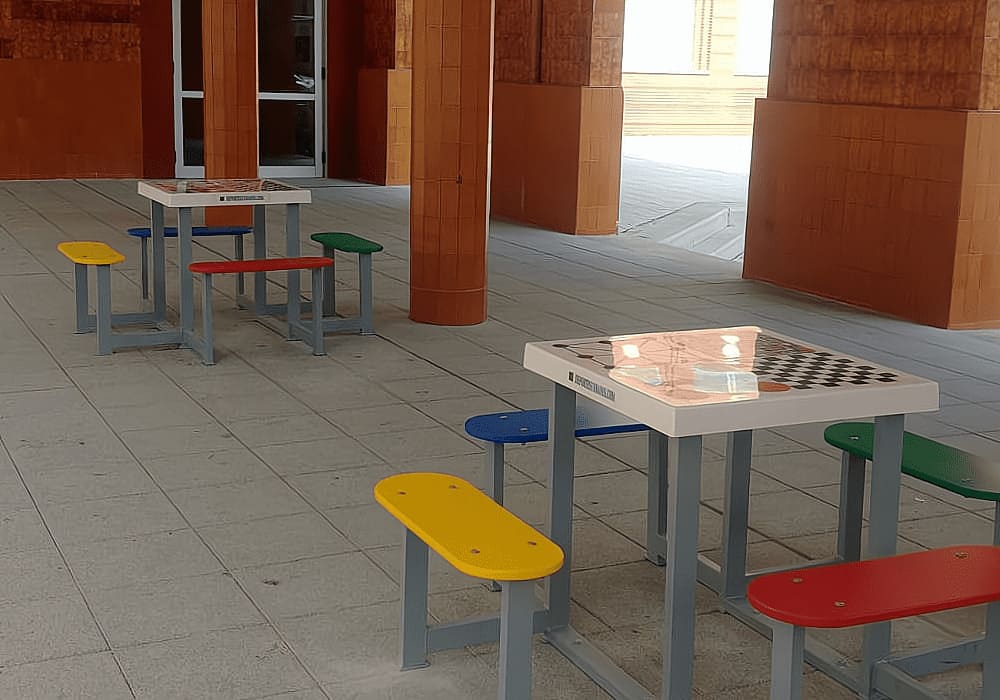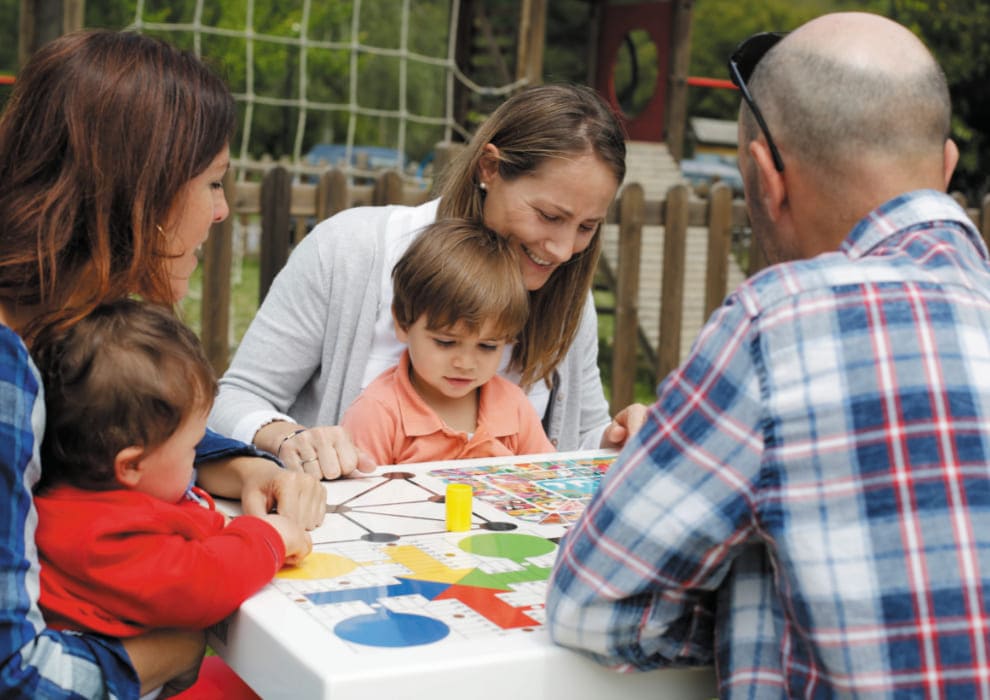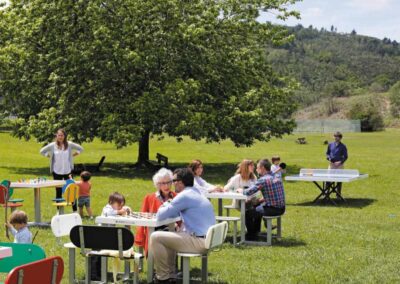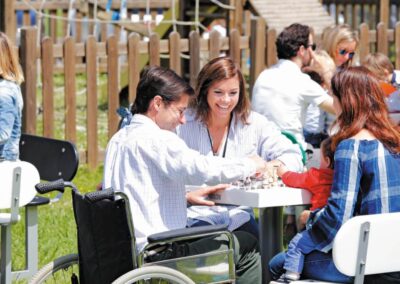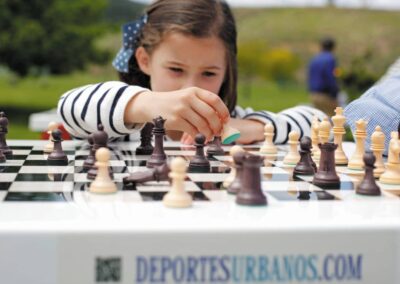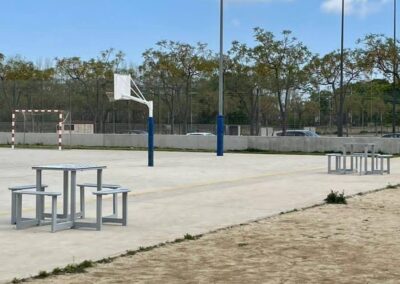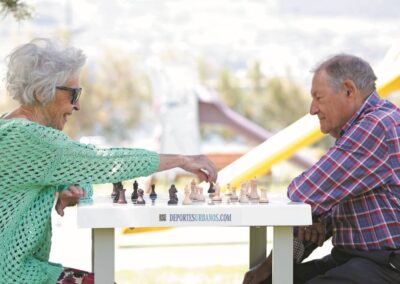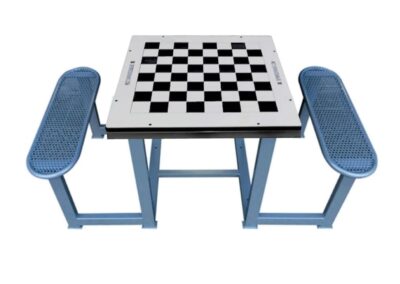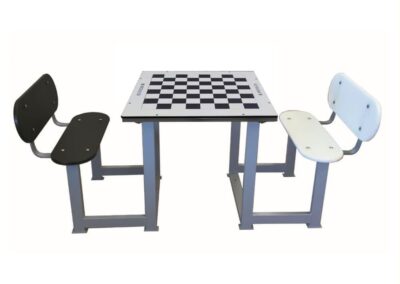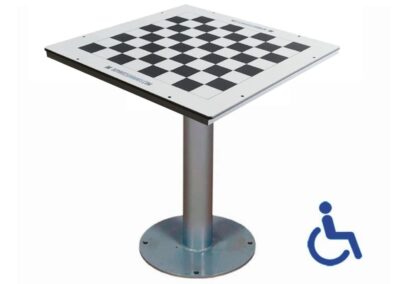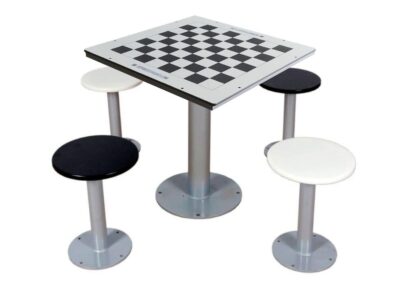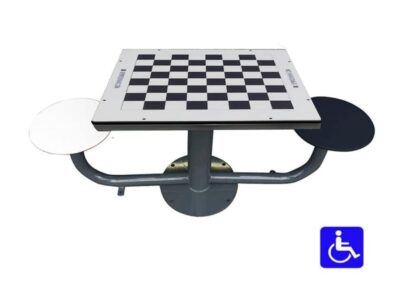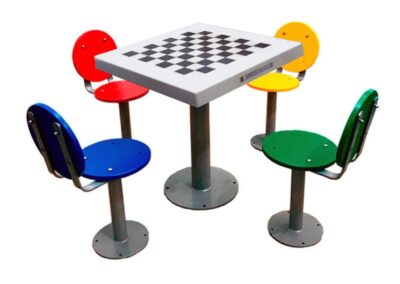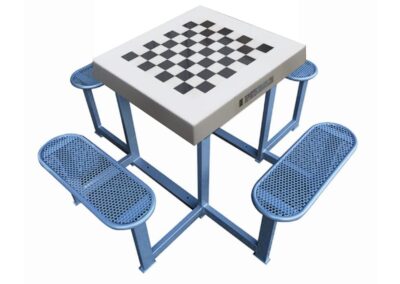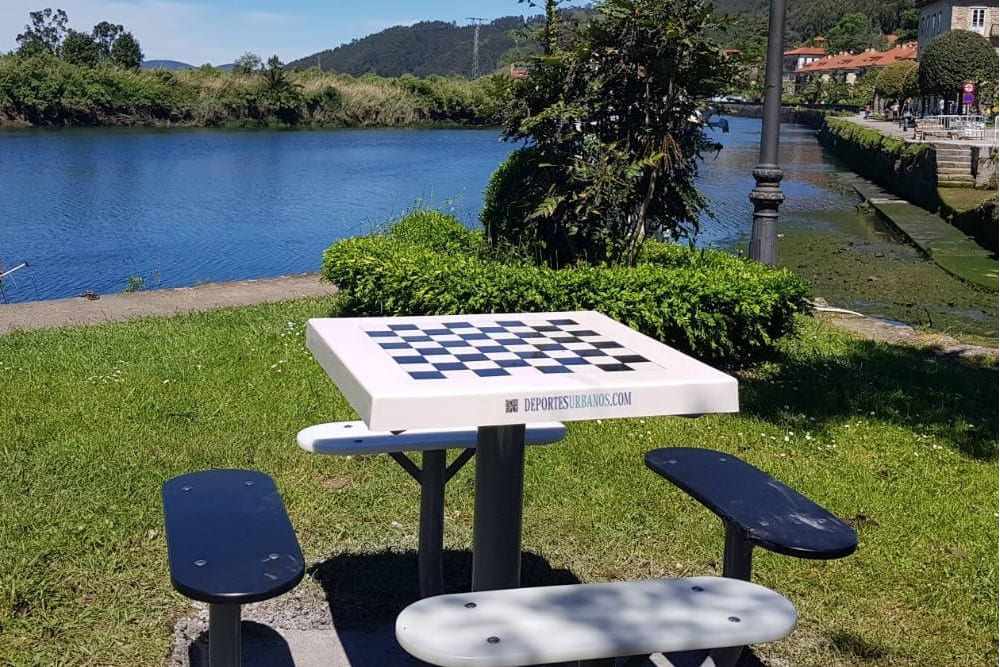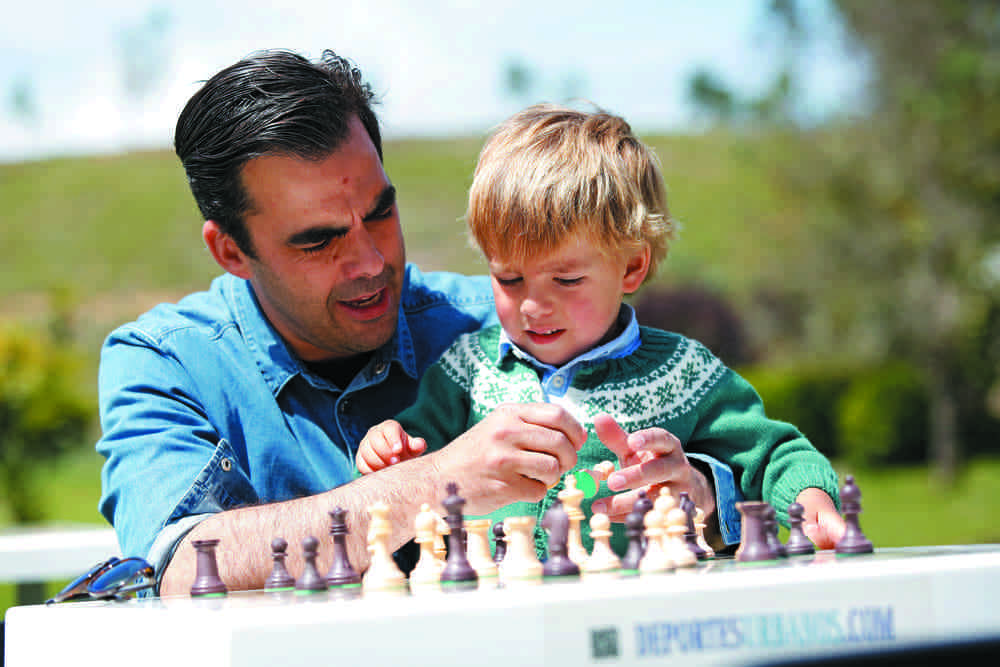Urban chess has a proven social, educational and therapeutic dimension.
In fact, in 2012, the European Parliament approved the introduction of chess in the educational and social systems of the member states of the European Union, considering that "chess is a universal game, without limits of age, gender or disability, which could improve social cohesion and integration, the fight against discrimination, the reduction of crime rates and even the fight against different addictions".
That is why chess tables in squares and parks are becoming a common sight in many cities and towns in Europe and around the world, as it is a great leisure alternative for children, young people and the elderly, providing multiple benefits, far beyond the intellectual aspect.
What is urban chess?
Urban chess is defined as a public space equipped with chess tables that provides an accessible meeting place for people of all ages and conditions to play chess in the open air and free of charge.
Urban chess, in addition to the installation of chess tables in public spaces, also usually includes the programming, by the municipal authorities, of workshops, meetings and competitions that help to promote participation among citizens and generate the idea that thinking can also be fun.
Why play chess indoors when you can also play outdoors?
Bringing chess to parks and public spaces in cities, where everyone can play, connects people, is beneficial for mental health and contributes to social cohesion.
In addition, chess parks help to combat loneliness among the elderly and stimulate children to discover, learn and play chess with other children or with their parents.
Would you like to create a chess park in your municipality?
Discover our wide range of tables to create your urban chess space. Take a look at our models and contact us, we will be happy to inform you about the possibilities available to you. We always take your budget and planning into account.
REQUEST A QUOTE. Free advice
Basic information on data protection: Responsible: Urban Sports. Purpose: To manage the sending of information and commercial prospecting. Legitimation: Consent of the interested party. Addressees: Users who consult. Rights: Access, rectification, deletion, limitation, portability and oblivion of your data.
Characteristics of chess tables for parks and public spaces.
When installed in outdoor spaces, chess tables must have a number of characteristics in order to be approved for public use:
They must have boards and benches made of anti-vandal materials that guarantee maximum resistance to intensive use, acts of uncivilised behaviour and inclement weather, and that also require minimum maintenance.
Until a few years ago, most outdoor chess tables were made of concrete, but due to their weight and construction they were difficult to transport and install, which led to complications and high prices.
On the other hand, there are models of tables that are marketed for outdoor use, but which are not approved for public use, due to the poor quality and durability of their materials.
The new models of urban chess tables.
At Urban Sports we have been manufacturing certified chess tables for public spaces for more than 10 years.
Thanks to our years of experience, we know exactly which tables are best suited for outdoor recreational areas.
Our public chess tables are the most advanced on the market and have attractive and very functional designs, so that children, young and old can enjoy entertaining games in the open air.
These are its main characteristics:
- They are manufactured with a galvanised steel chassis and coated with baked polyester paint for excellent resistance to corrosion, UV rays, impact and abrasion.
- The surface of the board is virtually unalterable, with anti-chafing and anti-graffiti varnishes, which protect the entire playing surface.
- The game is digitally printed on the board, which guarantees high resistance to impact, wear and scratching, and is immune to the effects of water, steam, heat and frost.
- The tables have comfortable seats or benches made of high density polyethylene or high quality tubular steel.
This innovative way of manufacturing, its ease of transport, installation and maintenance, its durability and its excellent quality-price ratio, has been the key for hundreds of municipalities to install these urban chess tables in the public spaces of their cities.
Why is it good to play chess?
With more than 500 million fans worldwide, chess is gaining momentum as an educational and social discipline due to the significant benefits it brings to citizens.
For children:
Chess is a game that helps children understand the consequences of their actions, accept the rules and learn to win and lose.
- Helps prevent addiction to digital devices and social networks.
- Promotes communication and interpersonal skills.
- It encourages creativity and imagination.
- Increases reading ability.
For young people:
Chess is an ideal game for our young people to develop their confidence, concentration and problem solving skills.
- Improves memory, creativity and imagination.
- It increases the ability to concentrate, synthesise, analyse and make decisions.
- Develops critical and creative thinking skills.
For the elderly:
Chess also benefits older people and the elderly by providing opportunities to keep the mind active and socialise through play.
- Helps prevent or delay the onset of symptoms of Alzheimer's, dementia and other age-related cognitive problems.
- It provides opportunities for socialising and combating loneliness, which contributes to a better mood.
Chess in urban public spaces.
Playing chess in outdoor public spaces also contributes to improving personal relations between users, fostering respect and coexistence.
It is very important that chess is available to all, regardless of their social circumstances, to ensure that all citizens can take advantage of the benefits it brings.
As a game that can be played by people of different ages and conditions, playing chess in public spaces can also contribute to bridging the generation gap.
The history of urban chess.
The 'Urban Chess' programme was launched in 2013 by Chess in Schools and the Communities (CSC).
In turn, many countries in the Americas and Southern Europe, such as France, Spain and Italy, have implemented urban chess programmes by setting up tables in public spaces in their municipalities, which has greatly encouraged their citizens to discover chess and enjoy the game in a pleasant outdoor environment.
Even in countries with colder climates, such as the Netherlands or Germany, successful initiatives have emerged that are encouraging the installation of tables in squares, parks and schools in their cities.
If you wish, you can also consult the entire catalogue of game tables for parks, school playgrounds and recreational areas, which, in addition to chess or checkers, can contain any other board game.
